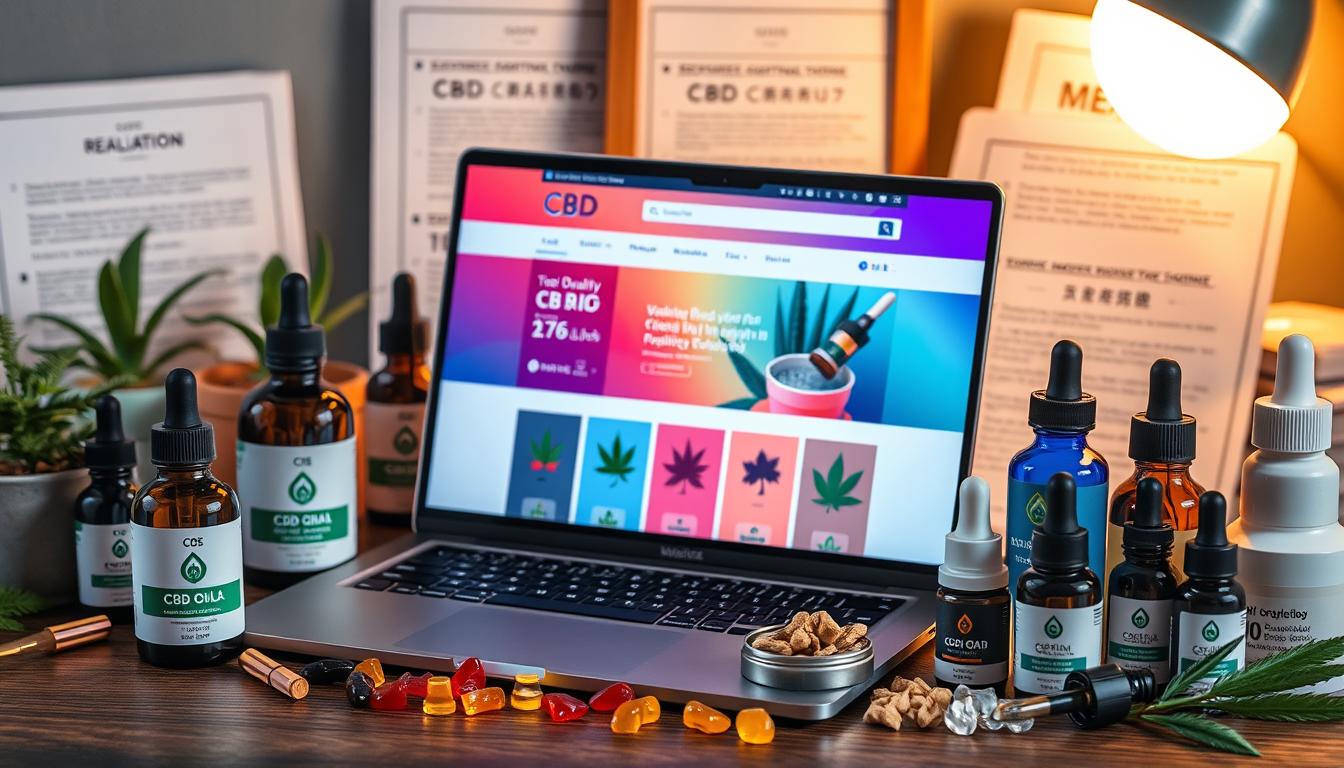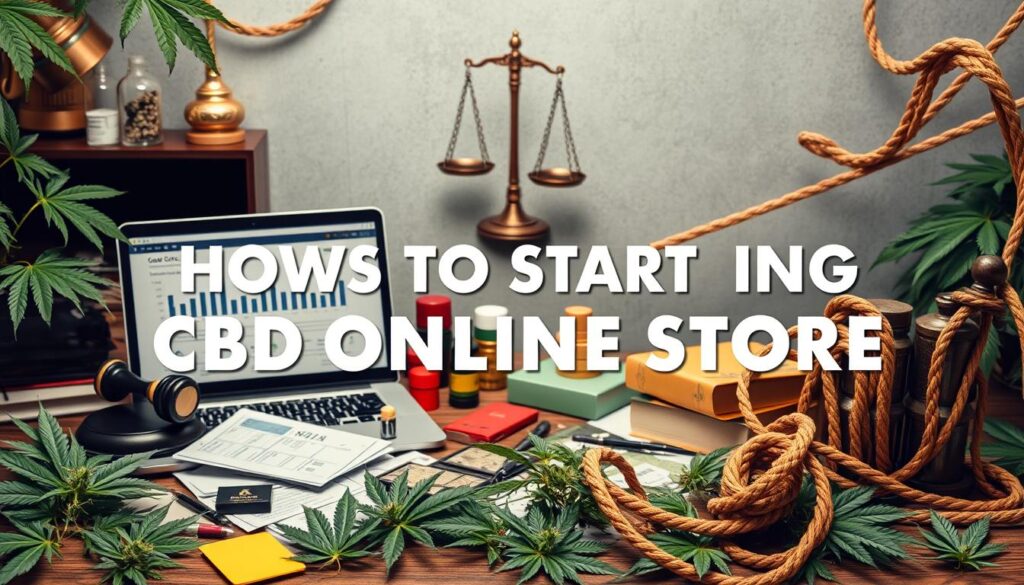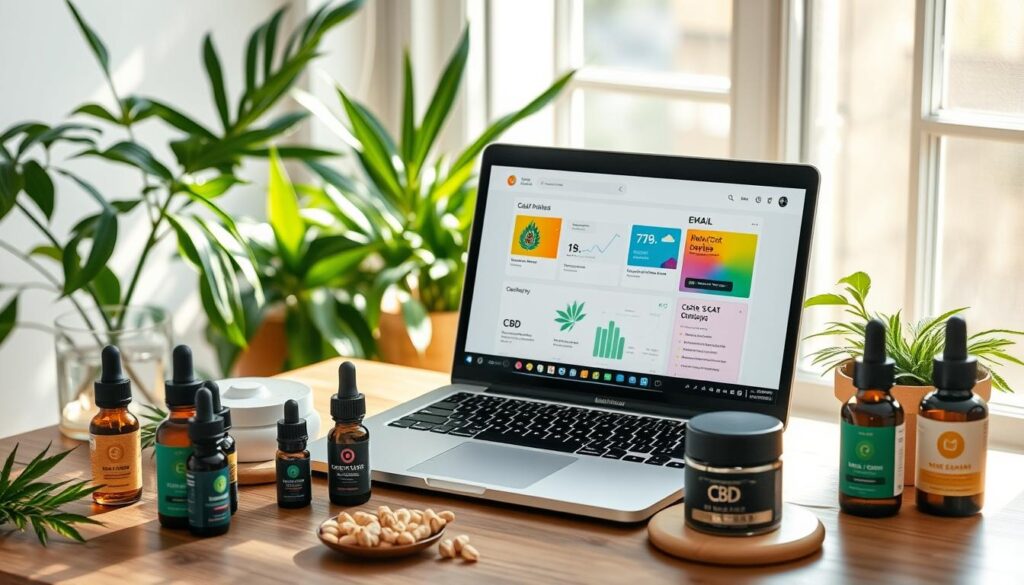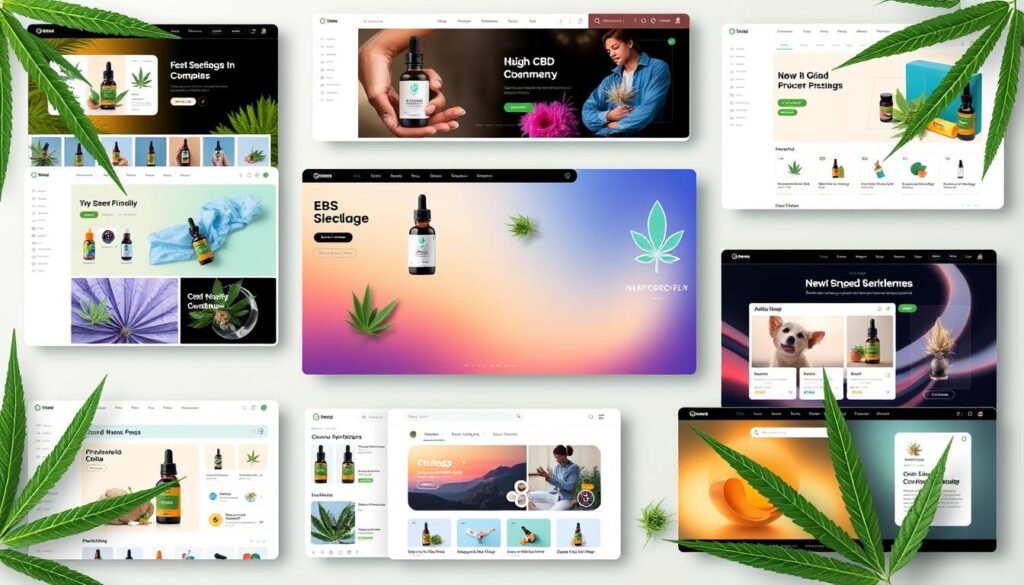Ever wondered about the legal traps in the CBD market? With the North America cannabidiol market set to hit $61.2 billion by 2027, knowing the laws is key.
Understanding the rules for selling CBD online is vital. It’s not just about following the law; it’s about keeping your business alive. In 2021, U.S. CBD sales jumped to $1.6 billion, with online sales leading the way.
The 2018 Farm Bill changed everything, making hemp-derived CBD legal if it has less than 0.3% THC. For those in CBD dropshipping, sticking to this rule is crucial. Breaking it can lead to big fines and hurt your business.
By watching for updates to the Farm Bill and using resources like official government channels or legal advice, we can stay ahead. Following federal and state laws protects us and helps us succeed in a competitive market.
Understanding the 2018 Farm Bill and Its Impact
The 2018 Farm Bill was a big deal for hemp. It made it legal to grow and sell hemp-derived CBD products. But, these products can only have up to 0.3% THC. This rule is key to following CBD product compliance with federal laws.
Before 2018, hemp was treated the same as marijuana. The Farm Bill changed this, making hemp legal. Now, farmers all over can grow hemp, opening up new opportunities.
But, there are rules to follow. States must create plans for growing hemp. These plans must be approved by governors and law enforcement. Breaking these rules can lead to serious penalties.
The Farm Bill also helps hemp farmers. It gives them the same protections as other farmers. It even allows for hemp research, helping us learn more about the plant.
For businesses, especially those selling online, knowing about the 2018 Farm Bill is important. CBD product compliance is crucial for success. But, it’s important to remember that the Farm Bill doesn’t mean all CBD products are legal. Keeping up with hemp legality and following cannabis regulations is vital.
Leaders like Mitch McConnell played a big role in the Farm Bill. His efforts helped make hemp legal in the US. This has opened up a new chapter for the CBD market.
As the CBD industry grows, it’s important for consumers to understand the laws. Following federal and state rules is not just necessary. It’s essential for the industry’s long-term success.
Federal CBD Guidelines and FDA Oversight
Understanding federal CBD guidelines is key for businesses in the growing CBD market. It’s important to keep up with the FDA’s changing views. This ensures you follow federal rules and stay in line with the law.
Navigating FDA Regulations
Getting to know FDA rules is a must. As of January 2023, the FDA says current laws don’t cover CBD well. They’re working with Congress to create new rules for CBD products.
They’ve been strict, sending warning letters to companies selling CBD and Delta-8 THC illegally. The FDA also watches out for CBD products sold to kids and pregnant women.
- July 2024: Joint efforts by the FDA and FTC to protect consumers from illegal Delta-8 THC products.
- May 2022: Warnings to companies selling CBD for food-producing animals.
- December 2018: Agriculture Improvement Act and changes in federal authorities regarding FDA-regulated hemp products.
The FDA keeps an eye on claims and product quality. They’ve reopened the comment period to address questions and gaps in data about cannabis products.
Compliance with Federal Food, Drug, and Cosmetic Act (FDCA)
Following FDCA rules is crucial. Since the 2018 Farm Bill, hemp laws have changed a lot. This affects how safe and how you can market cannabis products.
The FDA turned down requests to let CBD be sold as supplements. They say more research is needed to know it’s safe. They’re worried about CBD’s effects on the liver, male fertility, and how it might interact with medicines.
They also worry about animals getting CBD through meat, milk, and eggs. This shows how important it is to keep cannabis products safe in our food.
| Event | Date | Details |
|---|---|---|
| FDA and FTC joint effort | July 2024 | Protected consumers from illegal Delta-8 THC food products. |
| FDA framework conclusion | January 2023 | Existing regulatory frameworks unsuitable for CBD. |
| FDA warnings | May 2022 | Illegally selling CBD products for food-producing animals. |
For businesses in the CBD market, keeping up with FDA rules and FDCA compliance is essential. This ensures your products are legal and safe for customers. Being proactive helps you stay ahead of changes and grow in this fast-changing field.
State-Level CBD Rules
The rules for CBD in the United States are complex and vary by state. Even though the federal government has set guidelines, states have their own rules. Businesses need to know state-level CBD rules to follow the law.
State Registrations for Selling CBD
In many places, state-level CBD rules require sellers to get special permits. These rules apply to both physical stores and online shops. Not following these rules can lead to big penalties.
Some states, like Alaska and Montana, make it easy to sell CBD oil. But, other states, like Idaho, have very strict rules. They only allow CBD products with no THC.
Transportation of CBD Products Across State Lines
Transporting CBD products is another area with strict rules. Businesses must follow CBD transportation regulations to avoid trouble. Each state has its own rules for moving CBD across state lines.
Some states follow federal rules closely, while others have stricter rules. Knowing these rules helps businesses operate smoothly.
Here’s a table showing how different states regulate CBD:
| State | Regulations |
|---|---|
| Colorado | Comprehensive regulations; requires detailed labeling and testing standards. |
| Idaho | Strict laws; CBD products must contain zero THC to be legal. |
| Alaska | Fully legalized; simpler regulatory framework. |
| Texas | Comprehensive state-level rules; covers production, labeling, and testing. |
| Montana | Fully legalized; both medicinal and recreational use permitted. |
In summary, understanding state-level CBD rules is key for businesses. Keeping up with CBD usage restrictions and CBD transportation regulations helps avoid legal problems.
CBD Legal Considerations for E-commerce
The CBD market is booming, with expected revenues hitting $20 billion by 2024. It’s vital for CBD online businesses to understand and follow CBD e-commerce laws. This ensures all operations are transparent and trustworthy.
Licensing Requirements for Online Sales
While you don’t need a special license to sell CBD online, getting standard business licenses is crucial. You might also need a resale license for wholesale products. Laws differ by state, so it’s key to check local regulations carefully. Following both federal and state laws keeps your business in line.
Also, businesses must follow the 2018 Farm Bill and federal laws about THC levels. These laws are strict, requiring THC to be under 0.3% in cannabis plants. To legally sell CBD online, consider online CBD licensing to meet these standards.
Importance of Accurate Labeling and Testing
Accurate labeling and CBD product testing are crucial for a successful CBD online business. The FDA demands clear labeling of cannabinoid content. This means products must not mislead, with THC levels under 0.3% and proper warnings.
Some states have their own labeling laws. Following these is not just legal; it builds trust with customers. Thorough testing confirms the quality and purity of your products. This avoids legal trouble and boosts your brand’s reputation.
Incorrect labeling can cause serious problems. It can lead to heavy penalties and damage to your reputation. Investing in accurate labeling and testing is essential. It ensures your business meets legal standards and keeps customers loyal. By focusing on CBD label accuracy, you can avoid legal issues and build a strong customer base.
Best Practices for Staying Compliant
Working in the CBD industry can be tough due to changing rules. But, knowing and following CBD business best practices can help your business succeed. With the U.S. CBD market expected to grow to $16 billion by 2025, it’s key to keep up with new rules and marketing guidelines.
First, staying compliant starts with learning and keeping up with new laws. Working with legal experts who know CBD laws is important. Also, making sure your products are labeled right and have COAs from third-party labs helps. This makes your business look good and follows the rules.
The FDA has found many products are not labeled correctly. This has led to more checks and rules from states. Having a COA shows your product’s CBD and THC levels are right, and it’s safe from harmful stuff.
Adding a QR code to your labels is also a good idea. It meets state rules and makes things clear. A 2017 study showed 70% of CBD products were wrong about their CBD levels.
Working with good suppliers and platforms is also key. Companies like Epic CBD Marketing can help with design, development, and marketing. This makes things easier and helps follow marketing rules.
Putting good compliance plans into action builds trust and lowers risks. Being proactive and flexible helps businesses deal with legal issues. This way, they can make the most of the big market potential.
| Compliance Strategy | Benefits |
|---|---|
| Accurate Labeling & COA | Enhances credibility and ensures compliance with local regulations |
| Regular Legal Consultation | Keeps business operations in line with evolving legal standards |
| Partnering with Reputable Suppliers | Ensures product integrity and adherence to quality standards |
| Using QR Codes on Labels | Increases transparency and trust among consumers |
Grow Your CBD Business with Expert Guidance
Starting a CBD business means dealing with complex laws and rules. The CBD market is growing fast. It’s key for entrepreneurs to know the legal details to follow the rules and grow.
In Florida, CBD products are legal but follow strict rules. The 2018 Farm Bill made hemp legal if it has less than 0.3% THC. To sell CBD in Florida, products must be tested, labeled right, and meet state standards.
Working with experts like those at Epic CBD Marketing can really help. They offer web design, marketing plans, and payment setup advice for CBD online stores. This helps you follow the rules and market your CBD business well. With the market expected to hit $16 billion by 2025, good advice can make a big difference.
FAQ
What are the main legal considerations when selling CBD online?
How did the 2018 Farm Bill impact the CBD industry?
How can we navigate FDA regulations for CBD products?
What are the compliance requirements under the Federal Food, Drug, and Cosmetic Act (FDCA)?
What are the state-level CBD rules we need to be aware of?
Why is it important to register for selling CBD at the state level?
What are the considerations for transporting CBD products across state lines?
What are the licensing requirements for selling CBD products online?
How important is accurate labeling and testing in the CBD industry?
What are the best practices for staying compliant in the CBD industry?
How can expert guidance help grow a CBD business?
Source Links
- https://www.bigcommerce.com/articles/selling-cbd-online/
- https://shopthemedetector.com/blog/state-regulations-for-selling-cbd-online/
- https://www.ecspayments.com/how-to-sell-cbd/
- https://www.fda.gov/news-events/congressional-testimony/hemp-production-and-2018-farm-bill-07252019
- https://www.brookings.edu/articles/the-farm-bill-hemp-and-cbd-explainer/
- https://www.fda.gov/news-events/public-health-focus/fda-regulation-cannabis-and-cannabis-derived-products-including-cannabidiol-cbd
- https://www.fda.gov/news-events/press-announcements/fda-concludes-existing-regulatory-frameworks-foods-and-supplements-are-not-appropriate-cannabidiol
- https://www.forbes.com/health/cbd/cbd-legalization-by-state/
- https://neurogan.com/blogs/legal/is-cbd-legal-in-all-states
- https://paymentcloudinc.com/blog/is-cbd-legal/
- https://ftxidentity.com/blog/how-to-sell-cbd-online/
- https://agentblog.nationwide.com/commercial-insights/general-industries/key-risks-and-insurance-considerations-for-businesses-in-the-hemp-and-cbd-industry/
- https://quadlabels.com/blog/cbd-label-requirements-everything-you-need-to-know-to-stay-compliant/
- https://springbig.com/post/mastering-cbd-marketing-navigating-legal-ethical-and-industry-guidelines-for-success/
- https://www.legitscript.com/cbd-cannabis/compliant-cbd-product-labels/
- https://zebracbd.com/blogs/cbd-education/is-cbd-legal-in-florida-cbd-laws-2024
- https://www.bigcommerce.com/blog/how-to-start-a-cbd-business/






